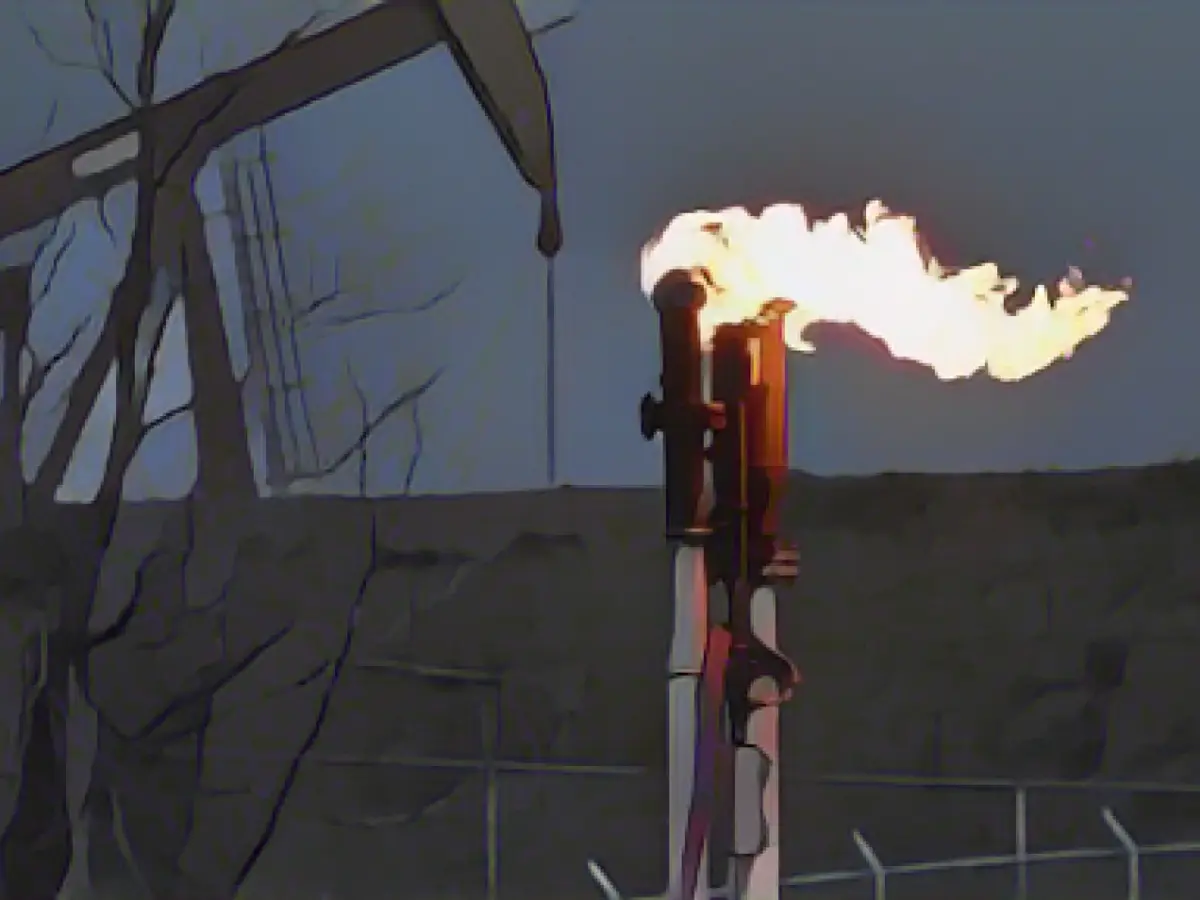Climate - USA tightens rules for methane
In the fight against global warming, the USA wants to drive forward the reduction of emissions of climate-damaging methane. At the climate conference in Dubai at the weekend, representatives of the US government announced new standards that would oblige oil and gas producers to close methane leaks. Germany and the EU are already one step ahead.
Methane escapes during the extraction of coal, oil and natural gas, among other things, but is also produced in the stomachs of cows and sheep and in landfill sites. The concentration of methane is rising faster than that of the most important greenhouse gas, carbon dioxide. According to the World Weather Organization, it is currently more than 2.5 times higher than before the industrial revolution. At the same time, methane can often be reduced more cost-effectively than carbon dioxide.
Over 150 countries join the pact
At the climate conference two years ago, the EU and the USA initiated an international agreement on this, the Global Methane Pledge (GMP), which over 150 countries have now joined. They emit just over half of man-made methane. However, China, India and Russia are missing from the list. A meeting of the methane alliance is due to take place in Dubai at the beginning of the week - new initiatives are expected.
"It's definitely valuable to have this specific international focus on reducing methane given its significant role in global warming," says Bill Hare, head of the Climate Analytics organization.
The member countries of the Methane Pact want to reduce their emissions by at least 30 percent between 2020 and 2030 - if nothing is done, they will increase by up to 13 percent globally, according to the initiative. The agreement has the potential to reduce global warming by at least 0.2 degrees by 2050. However, according to Hare, it is not enough to limit global warming to 1.5 degrees. This would require a global reduction of 34 percent by 2030.
China recently presented its own 14-page plan for methane reduction. It contains no concrete figures or data on the overall reduction and many individual, mostly unspecific targets, such as making greater use of the methane escaping from coal mines.
National methane plan
The EU Parliament and countries also agreed in mid-November to tighten the rules for the oil, gas and coal industries - with clear timetables. Here too, operators of oil and gas plants are to regularly search for and repair major methane leaks. Methane flaring will be banned in many places.
"Overall, the Global Methane Pledge has managed to draw attention to the issue," says Thea Uhlich, climate spokesperson for the organization Germanwatch. In fact, in a joint letter, the USA and the EU refer to many new international initiatives and funding, including from private foundations. 50 countries are in the process of developing a national methane plan.
"Ultimately, of course, what counts is whether the GMP leads to actual methane reductions that would not have occurred without it," says Uhlich. There is still a lack of data to evaluate its success.
According to the European Environment Agency, the EU has already reduced its methane emissions by 36 percent between 1990 and 2020. This was mainly achieved in the energy and waste sectors. According to the Federal Environment Agency (Uba), Germany even reduced its methane emissions by 66 percent between 1990 and 2022. This was mainly due to a drastic reduction in emissions in the same areas. One factor is the end of hard coal mining, but not only: mine gas is being extracted and used and less gas is also escaping from landfills. According to Uba, the expansion of the circular economy, for example with waste separation and the use of biogas, is decisive here.
Read also:
- Klingbeil expects migration debate "without shouting"
- +++ 06:20 USA wants to halve Russian oil revenues +++
- Situation on Bavaria's roads eases - train services disrupted
- The USA, aiming to combat global warming, is pushing for the decrease of greenhouse gas emissions, specifically methane, in the oil and gas sector.
- The United Nations Framework Convention on Climate Change (UNFCCC) conference in Dubai saw the participation of over 150 countries, including the EU, to discuss global warming mitigation strategies.
- The EU and USA initiated the Global Methane Pledge (GMP) two years ago, which aims to reduce methane emissions by at least 30% between 2020 and 2030, with 150+ countries signed up.
- Russia, China, and India are yet to join the Global Methane Pledge, even as a climate conference in Dubai has been scheduled to discuss potential initiatives.
- Bill Hare, head of Climate Analytics, supports the international focus on reducing methane, given its role in global warming and its potential for cost-effective reduction compared to carbon dioxide.
- China recently presented a 14-page plan for methane reduction, but critics argue that it lacks concrete figures and specific targets for overall reduction.
- Germany, a signatory of the GMP, approved tighter rules for oil, gas, and coal industries in November 2022, focusing on regular methane leak searches and repairs, and reducing methane flaring.
- Thea Uhlich of Germanwatch praises the Global Methane Pledge for driving attention to methane reduction, while admitting that more data is needed to evaluate its success.
- According to the European Environment Agency, the EU has decreased its methane emissions by 36% between 1990 and 2020, mainly due to strides in the energy and waste sectors, while Germany and other countries continue to work on further reducing methane emissions.
Source: www.stern.de








